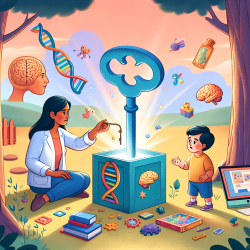Understanding the KIDSCREEN-10 Validation Study
The recent study titled "Validation of the Chinese Version of KIDSCREEN-10 Quality of Life Questionnaire: A Rasch Model Estimation" offers significant insights into the psychometric evaluation of health-related quality of life (HRQoL) instruments for children. The study's aim was to validate the Chinese version of the KIDSCREEN-10 questionnaire using the Rasch model, an advanced psychometric tool that provides a detailed analysis of item performance.
Key Findings and Implications for Practitioners
The study involved a cross-sectional survey of 1,830 students aged 8 to 18 years in Gansu province, China. The results indicated that the KIDSCREEN-10 questionnaire demonstrated good internal consistency and validity. However, several issues were identified, such as disordered response categories and misfit items, which were addressed by collapsing response categories and removing certain items. This resulted in a refined seven-item version with improved psychometric properties.
For practitioners, these findings highlight the importance of using validated instruments tailored to specific cultural contexts. The study suggests that while the original KIDSCREEN-10 is a robust tool, its adaptation to different cultural settings requires careful consideration of linguistic and cultural nuances. Practitioners should be aware of these adaptations to ensure accurate assessments of children's quality of life.
Encouraging Further Research
The study also underscores the need for further research using classical test theory (CTT) to explore the psychological properties of the KIDSCREEN-10. While the Rasch model provides a detailed analysis of item performance, CTT can offer additional insights into the reliability and validity of the instrument in different cultural settings. Practitioners are encouraged to engage in further research to refine these tools and enhance their applicability across diverse populations.
Practical Applications in Speech Language Pathology
For speech language pathologists, understanding the nuances of quality of life assessments is crucial for developing effective intervention strategies. The KIDSCREEN-10 provides valuable insights into various dimensions of children's well-being, including physical, psychological, and social aspects. By integrating these assessments into practice, pathologists can tailor interventions to address specific areas of need, ultimately improving outcomes for children.
Conclusion
The validation of the Chinese version of the KIDSCREEN-10 questionnaire is a significant step forward in ensuring accurate assessments of children's quality of life in diverse cultural contexts. Practitioners are encouraged to utilize these findings to enhance their practice and contribute to further research in this field. By doing so, we can continue to improve the well-being and development of children worldwide.
To read the original research paper, please follow this link: Validation of the Chinese Version of KIDSCREEN-10 Quality of Life Questionnaire: A Rasch Model Estimation.










